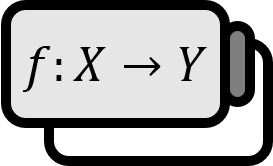The Integral of a Periodic Function Over One Period is Constant Regardless of the Integration Interval
Theorem
Let’s call $f$ a periodic function with $2L$. Then, the value below remains constant regardless of the value of $a$.
$$ \int_{a}^{a+2L}f(t)dt $$
Explanation
By definition of periodic functions, this is obvious. From this fact, when integrating periodic functions, techniques such as changing the interval of integration can be applied.
Furthermore, if you consider it in conjunction with the average value of a function, it means that the average of one period of a periodic function is constant, which again is very obvious considering the definition of periodic functions.
Proof
Let’s say $\displaystyle g(a)=\int_{a}^{a+2L} f(t)dt$. If differentiating $g(a)$ by $a$ results in $0$, then the proof is complete. Let’s divide the interval of integration as follows.
$$ g(a)=\int_{0}^{a+2L}f(t)dt - \int_{0}^a f(t)dt $$
Then, by the Fundamental Theorem of Calculus, the following holds true.
$$ g^{\prime}(a)= f(a+2L) - f(a) $$
Here, because of the condition of $f$, we have $f(t+2L)=f(t)$, so we obtain the following.
$$ g^{\prime}(a)=0 $$
■
